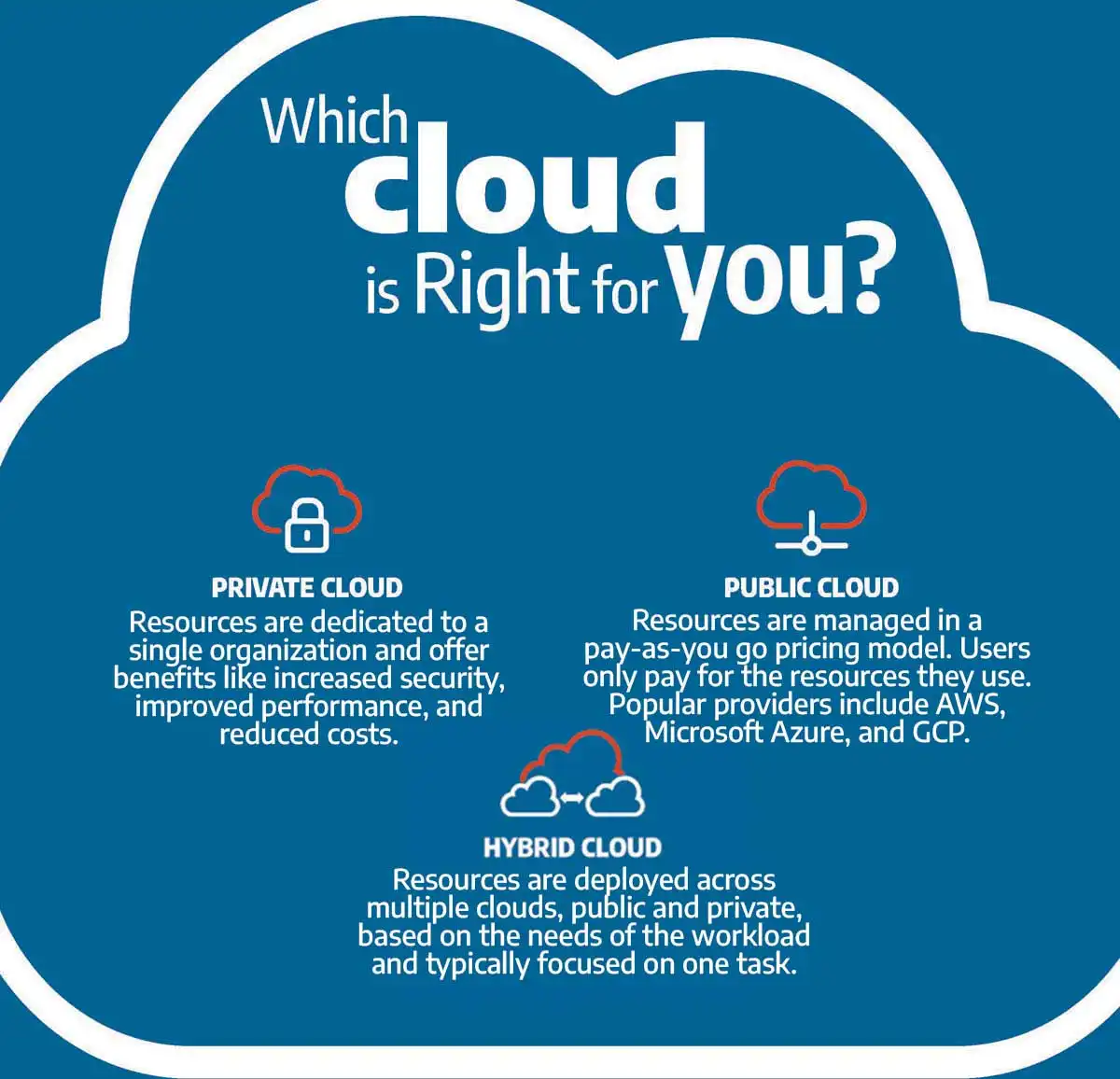The world of business is changing rapidly. Remote work is normalized, inflation is leading to costcutting, and business owners are busier than ever. In this new landscape, the importance of cloud computing cannot be understated.
You might be surprised to hear that cloud computing can help with all of these issues. Of course, it’s not the only answer, but it can help you save money, time, and make your data more accessible.
This article will take a closer look at 8 benefits of cloud computing that emphasize its increasing importance. We’ll discuss how it helps solve modern business problems so you can future-proof your organization.
Looking for Canadian Cloud Computing Services? |
Types of Cloud Servers
Before we get started, it’s important to realize that there are 3 different types of cloud servers. The right option depends on your own business needs. The following list explains each type of cloud server and the best circumstances to use it.
1. Private Cloud
A private cloud server is owned by a specific company. You or an outsourced cloud service provider may be the owner and it may be on-site or remote. The owner of the server is responsible for controlling, maintaining, and updating it.
There are certain industries that need to use private cloud environments to meet regulatory requirements. Private clouds are less prone to data leakage from information accidentally landing in the wrong organization’s network.
2. Public Cloud
A public cloud is owned by a major cloud service provider like Amazon Web Services. It’s somewhat like renting a storage unit in a facility. You pay for the space you use alongside many other organizations. However, the cloud service provider is fully responsible for maintaining the infrastructure.
The public cloud is ideal for businesses that are willing and able to take a fully hands-off approach. There are several advantages to this if you’re comfortable fully handing over control. It saves a significant amount of time and resources that you can put toward other business operations. It’s also good for companies that lack in-house expertise.
3. Hybrid Cloud
The hybrid cloud mixes both on-premise infrastructure and a public cloud server. You would maintain part of your infrastructure and your public cloud provider would maintain the rest.
This option is good for companies that need the scalability of a public cloud and the control of a private cloud. For example, a company may have too much data to hold on its physical server but need to keep some data on private servers for compliance. So, they would hold some data on-premise and other data in a public cloud server.

Source: Connectria
Benefits of Cloud Computing in the 2020s
1. Remote Accessibility
Data stored in the cloud can be accessed by anyone with an internet connection. For this reason, cloud computing is ideal for businesses that have a remote workforce or multiple locations.
2. Enhanced Collaboration
Many employees lose focus when they don’t feel any connection to their coworkers. Collaborative teams often outperform their non-collaborative counterparts. Because cloud infrastructures facilitate data sharing over the internet, it’s easier for teams to collaborate.
3. Cost Savings
With cloud services, there’s no need to purchase an on-premise data center or additional software applications. Additionally, you’ll save on labour costs because you don’t need to get your IT staff to perform complex hardware setups. In fact, cost savings are one of the most common reasons why businesses move to the cloud.
4. Increased Productivity
As mentioned, cloud-based data increases productivity by giving all employees access to the same information. However, the main reason why it enhances productivity is that cloud servers are generally less prone to meltdowns and downtime than physical servers. This decreases interruptions during day-to-day operations.
| Learn More About Cloud Computing & IT Service Providers |
5. Higher Security
Cyber threats are on the rise. Canada saw 19,353 major breaches between December 2020 and January 2022. Cloud computing helps decrease the chance of a successful attack. This is because it limits physical access to your information storage center. Cloud data also makes disaster recovery easier because there are typically more backed-up versions of your data.
6. Scalability
If you need more computing resources, you can easily get them from your cloud provider without purchasing additional hardware. This is useful for business growth or temporarily high-demand periods like peak shopping season.
7. IoT Data Handling
Internet of Things (IoT) devices are increasing in popularity. Cloud computing is an effective way to handle the vast amounts of data generated by IoT devices. Cloud servers can collect, store, and analyze IoT data. You can also see real-time insights into this data which can improve certain decision-making processes.
8. Sustainability
With less on-site hardware, there’s less waste and energy consumption. Therefore, companies can use cloud computing to improve their Ethics & Social Responsibility (CSR) ranking. This ranking attracts more investors and customers alike.
Don’t Know Where to Start With Cloud Computing Solutions?
There’s a lot to think about when it comes to cloud computing. Understandably, you might not know where to start. Luckily, you can trust a managed services provider to help guide you through your cloud journey.
Sunco Communication and Installation, Ltd. offers expert cloud consulting services to businesses across North America. We’re experienced in public, private, and hybrid clouds and are ready to help you choose the right solution for your business needs.
Contact us to find out more about what we can do for you.




